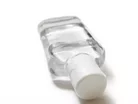Handwashing campaign successfully eliminated superbugs

The CleanYourHands campaign, which was introduced into hospitals across England and Wales in 2005, was successful in its aim of reducing the spread of superbugs.
Incidence of infections such as MRSA and C. Difficile (C. Diff) reduced significantly, according to a new report.
An evaluation of the campaign revealed that the use of soaps and antibacterial hand gels tripled during the campaign too.
However, despite the success, the campaign – which was funded by the UK government – is no longer active in the UK.
To read the latest edition of Healthcare Global, click here
- Electronic eye implant trial brings hope for blindness cure
- Aspirin is as effective as warfarin for heart patients
- Memory problems reduce with exercise and computer games
The CleanYourHands campaign aimed to encourage hospital staff, patients and visitors to wash their hands – either with soap and water or with an alcohol hand gel – every time they entered or left a ward and between contact with different patients.
In total, rates of the MRSA superbug in hospitals fell by half, to 0.91 cases per 10,000 bed days from 1.88 cases per 10,000 bed days.
Meanwhile, using the same scale of per 10,000 bed days, rates of C. Diff decreased from 16.75 to just 9.34 – a drop of almost 40 percent.
When the campaign was launched in 2005 hospitals were purchasing 22ml of hand soap and antibacterial hand gel per patient per day.
However, by 2008, this had increased to 60ml per patient per day.
Commenting on the success CleanYourHands, a spokesperson for the Department of Health said: “The Clean Your Hands campaign was successful in its aim to highlight the importance of good hand hygiene practice across the NHS.
“The challenge now is to ensure the NHS embeds the good practice highlighted in the campaign to achieve our ambition to wipe out avoidable healthcare-associated infection.”
“We know real progress has been made in this area as MRSA bloodstream infections have dropped by 41 percent and C. difficile by 30 percent across the NHS in England since 2009/10.”
The results of the study into the effectiveness of the campaign have been published on the British Medical Journal website.
The Healthcare Global magazine is now available on the iPad. Click here to download it.
